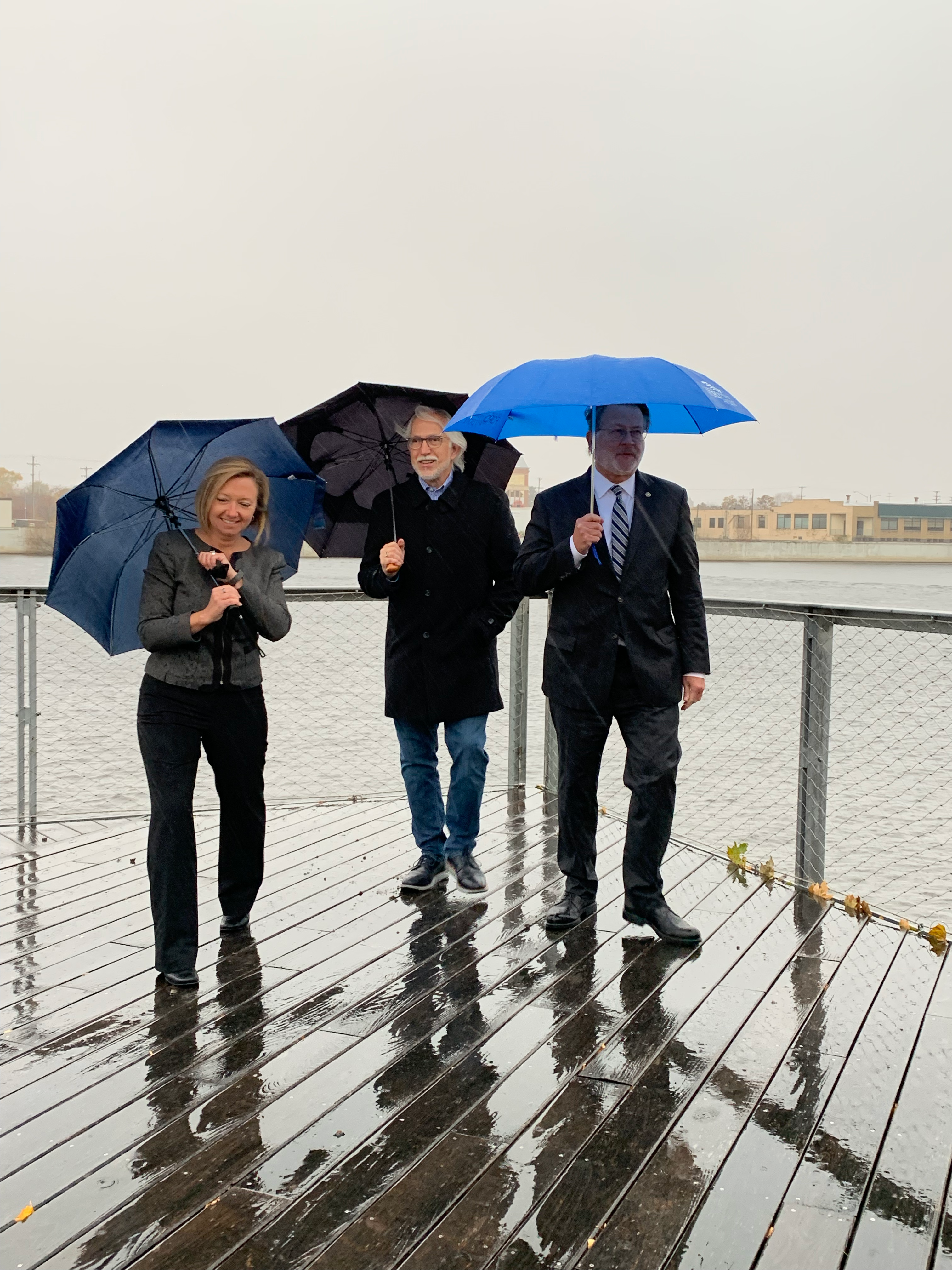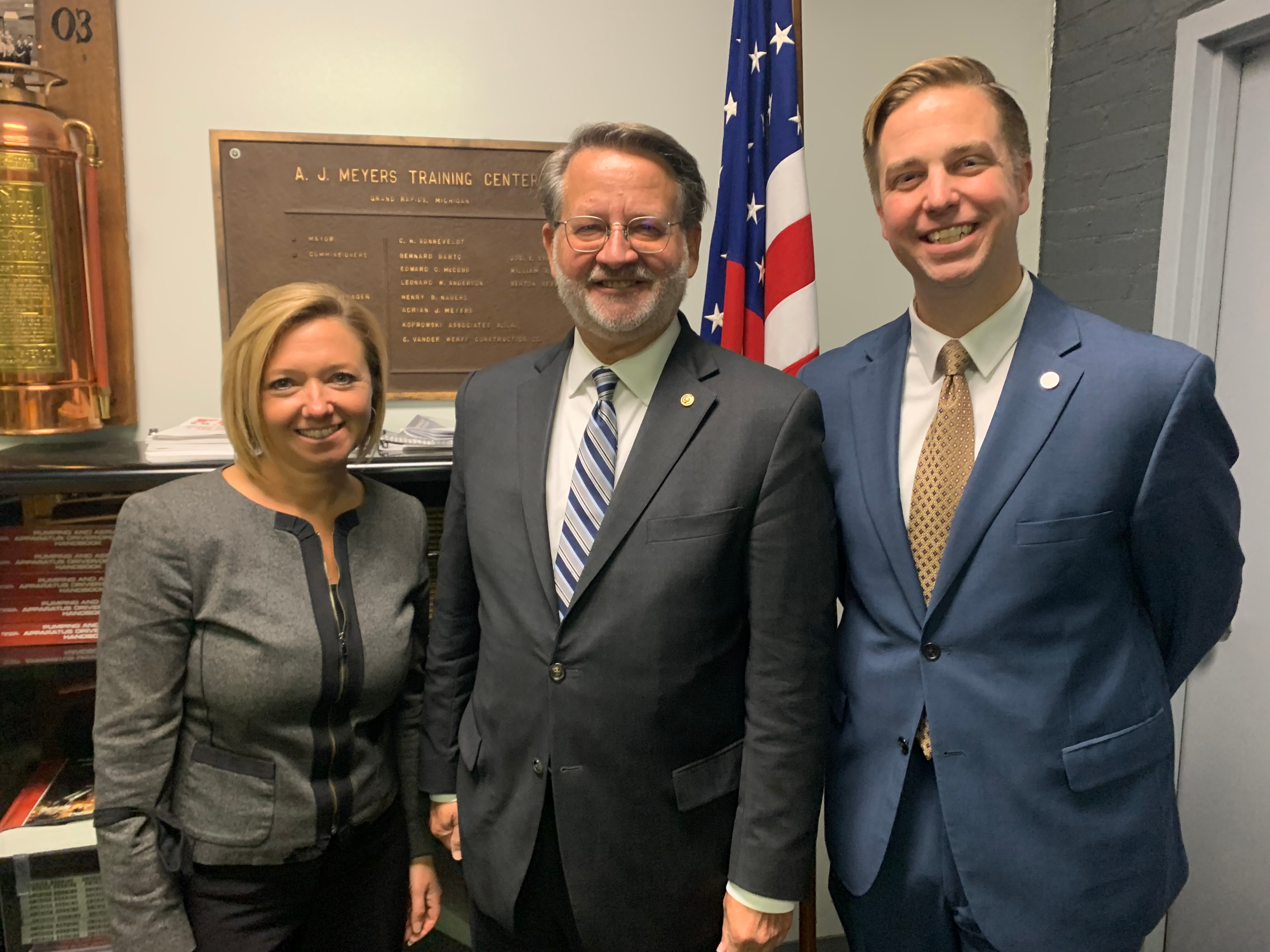PHOTOS: In Grand Rapids, Peters Highlights $500 Million in Funding for STORM Act Loan Program to Protect Michigan Communities from Rising Water Levels and Coastal Erosion
Peters Secured First Funding for Loan Program in Bipartisan Infrastructure Bill
GRAND RAPIDS, MI – U.S. Senator Gary Peters (MI), Chairman of the Homeland Security and Governmental Affairs Committee, viewed floodwalls along the Grand River and highlighted the $500 million he secured in the bipartisan infrastructure bill to fund a loan program he created to help communities like Grand Rapids invest in additional projects that will protect against severe flooding, rising water levels, and coastal erosion. This marks the first funding for the program created by Peters’ Safeguarding Tomorrow through Ongoing Risk Mitigation (STORM) Act, which was signed into law earlier this year. With the new funding Peters secured, the program will help states establish revolving loan funds that can be used to support local infrastructure projects to protect against natural disasters that have put homes, small businesses, property, and communities at risk, and caused millions of dollars in damages. Peters was joined by Grand Rapids Mayor Rosalynn Bliss and Grand Rapids Chamber of Commerce Vice President of Government Affairs Andy Johnston for the tour.
“Rising water levels on the Great Lakes continue to have devastating effects for businesses and families in Grand Rapids and across Michigan. Communities need additional support that will help them make these important investments to strengthen their infrastructure and protect against the threats posed by high water levels, severe flooding and shoreline erosion,” said Senator Peters. “I was proud to create the STORM Act to provide new opportunities for local governments to invest in mitigation projects, and the funding I recently secured will help kick-start this program and ensure counties and cities can use these federal funds to upgrade their water infrastructure, save taxpayer dollars and help safeguard the lives and livelihoods of countless Michiganders for years to come.”
“Our water resources are a vital part of what makes Grand Rapids unique, but rising water levels on the Great Lakes have caused serious flooding, shoreline erosion and other damage that puts our residents, their homes, and our businesses at risk,” said Mayor Bliss. “As natural disasters continue to get worse due to climate change, cities like ours need help investing in weather-resilient infrastructure. I greatly appreciate Senator Peters’ tireless work to establish this loan program and secure this important funding so that communities like Grand Rapids will have more opportunities to build stronger infrastructure and keep our residents safe.”
“Small businesses are the heart of every community, but damage from increased severe storms and flooding can be devastating for small businesses, their owners and their employees,” said Andy Johnston. “I applaud Senator Peters for working to secure this important federal investment so that communities like Grand Rapids will have a new opportunity to strengthen our aging water infrastructure and protect our local economies in a cost-effective way.”
During the tour, Peters examined how providing additional resources for Grand Rapids to update their water infrastructure will improve the city’s ability to address rising water levels and coastal erosion that affects communities and businesses. The loan program and funding for Peters’ STORM Act will allow local governments to access critical funds to make critical infrastructure upgrades and help mitigate the impact of natural disasters in a more cost-effective way. Studies have shown that resilience and mitigation spending saves taxpayers an average of $6 for every $1 invested.
Unlike existing Federal Emergency Management Agency (FEMA) grants, the low-interest loans created by Peters’ STORM Act would allow local governments to invest in resiliency and mitigation projects that reduce the effects of shoreline erosion and rising and high water levels, along with other natural disasters. These loans would reach communities more quickly than FEMA’s traditional grants, and provide local communities with the capital necessary to invest in more resilient infrastructure.
To download high-resolution photos from the visit, click on the images below. Images are courtesy of Senator Peters’ office.


###